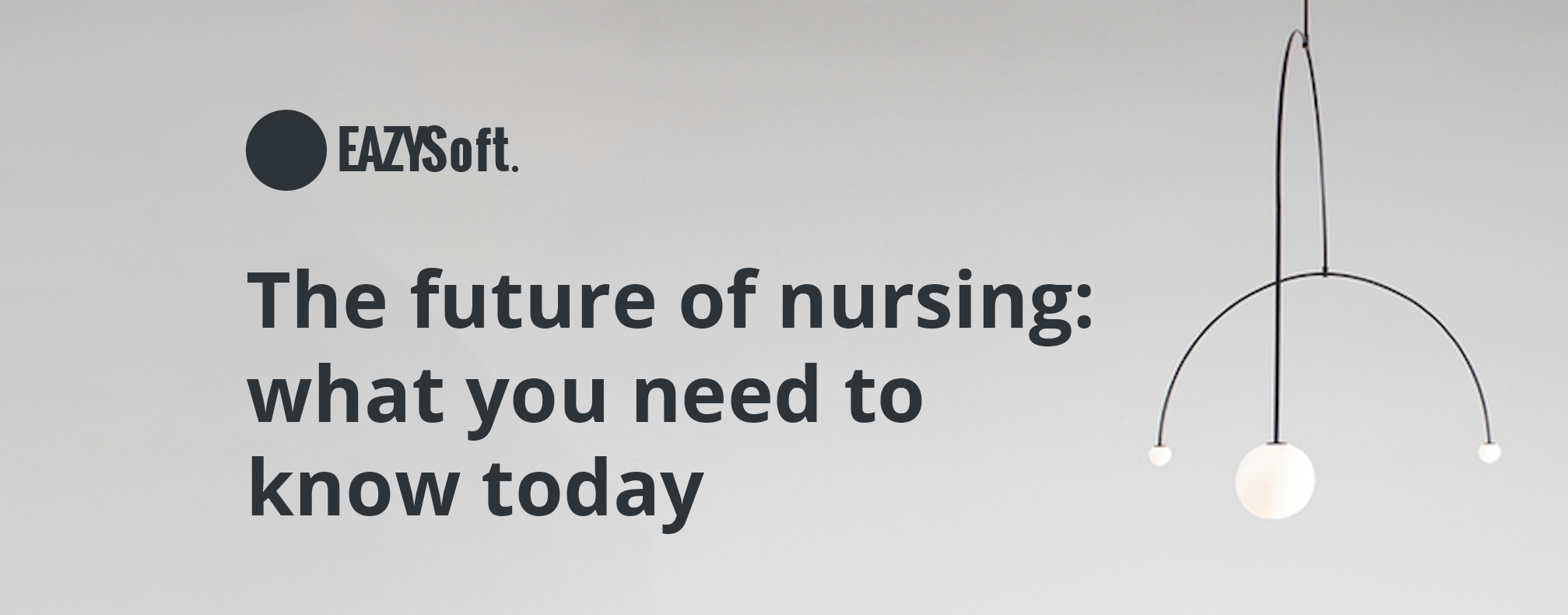
The Future of Nursing: What You Need to Know Today
It’s an exciting time to be a part of the healthcare industry. With changes in care delivery, technological advances and increased patient expectations, the role of nurses as healthcare professionals is growing and evolving. This trend requires nurses to have the latest information at their disposal so they can effectively assess and treat their patients.
While compassion, critical thinking and excellent clinical skills are always the most important skill areas for nurses, significant changes are coming in terms of where nurses work, how they deliver care and more. Since nurses often find themselves on the front lines of new trends in the healthcare system, they may need more education in order to be able to lead change in a variety of clinical areas. What are some of the most relevant trends in the modern healthcare system, and how are they affecting nurses?
Trends that are changing the future of nursing
Growing role of informatics
As technology advances, so does the amount of health care data that is collected through information technology such as electronic health records, patient portals and wearable devices. The information is analyzed and leveraged to make appropriate changes to existing procedures and clinical strategies. This trend is having a significant impact on nursing practice in hospitals and other U.S.-based care organizations. Informatics’ growing role is changing the way that nurses record and communicate patient information, how care is coordinated and the development of evidence-based practices.
In addition to affecting nurses’ day-to-date work, the increased use of informatics is creating positions for professionals who want to focus entirely on the intersection of nursing and data. Some specific jobs titles pursued by nursing professionals include the following:
- Clinical informatics specialist
- Nursing informatics specialist
- Clinical analyst
- Clinical informatics manage
- Clinical informatics coordinator
- Nursing informatics analyst
Even nurses who do not pursue a full-time data-related role likely will become more involved in the practice of informatics as health information technology continues to grow in popularity
Increasing emphasis on population health
Population health is a broad care approach that focuses on the health outcomes of an entire group of people. While strategies vary by context, they usually involve communitywide initiatives, such as educating school children on the importance of healthy eating or encouraging a city’s seniors to get vaccinated for the flu.
Some of the goals of population health include:
- Increase physical activity
- Decrease work days lost to illness
- Decrease infant mortality and preterm births
- Decrease cases of diabetes
These strategies not only are meant to improve health outcomes but also to help save money for patients and health care organizations by preventing medical problems before more expensive interventions are required.
Nurses can bring great value to this health care model with the expert care they provide helping the health care system as a whole respond to patient needs on both the individual and population level. Nurses are well-placed to identify problems that need to be addressed on a wide scale and connect patients with specific services that are provided in communities.
Emphasis on Education
As more hospitals make a Bachelor of Science in Nursing (BSN) an entry-level requirement, the healthcare field will see an increase in nurses earning their BSN and nurses pursuing advanced degrees such as Master of Science in Nursing (MSN) to stay competitive in the job market.
Though continuing medical education (CME) has always been a priority for nurses, the aforementioned ever-evolving clinical technology landscape will make CME even more important. Since many healthcare organizations understand attending CME classes can be inconvenient, there will likely be an increase in the availability of online courses.
While there are no guarantees of what the future of nursing will look like, every nurse has a responsibility to their patients and themselves to always be on the lookout for new ways to improve the quality of care they provide. Nurses who embrace new clinical technology, focus on their professional development and seek out opportunities to increase their knowledge will be in an excellent position in the coming year.Although the future of nursing will likely see many changes, patient-centered care is one of the best ways to increase patient satisfaction.
